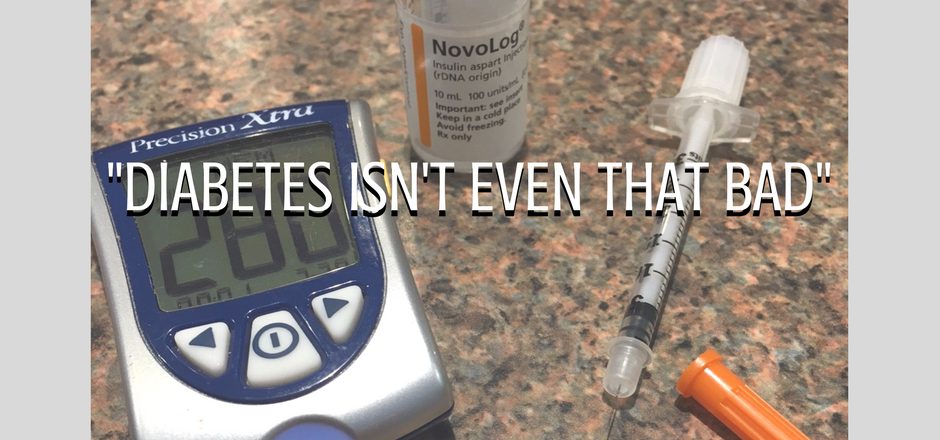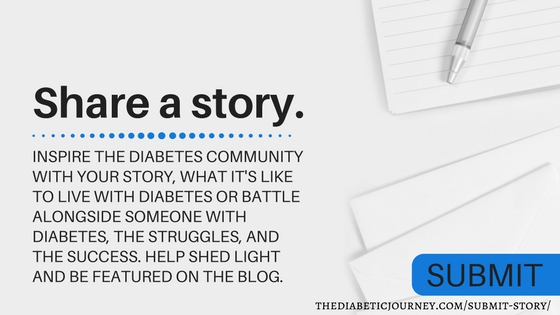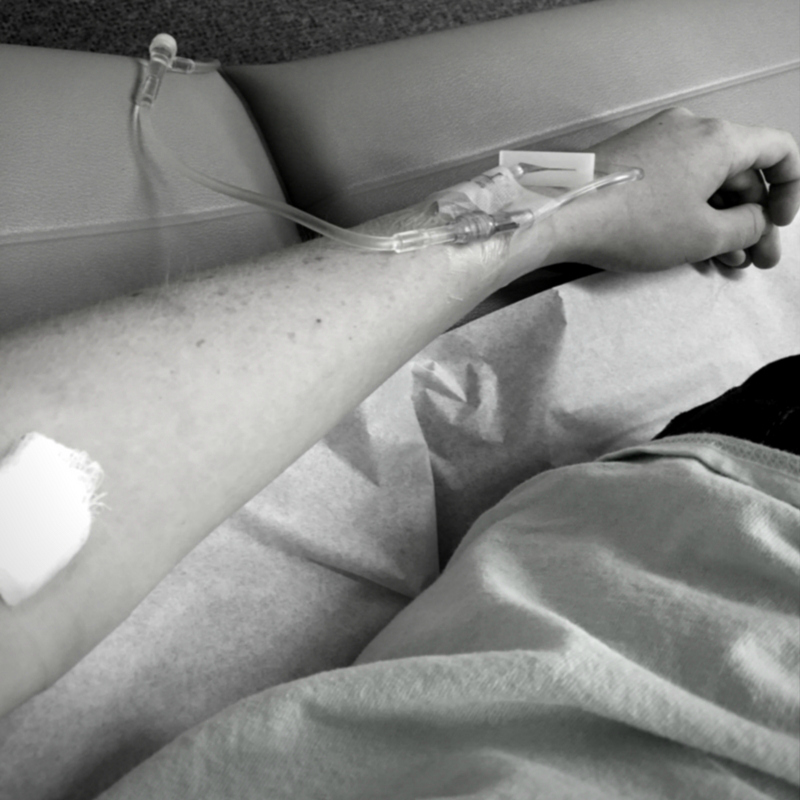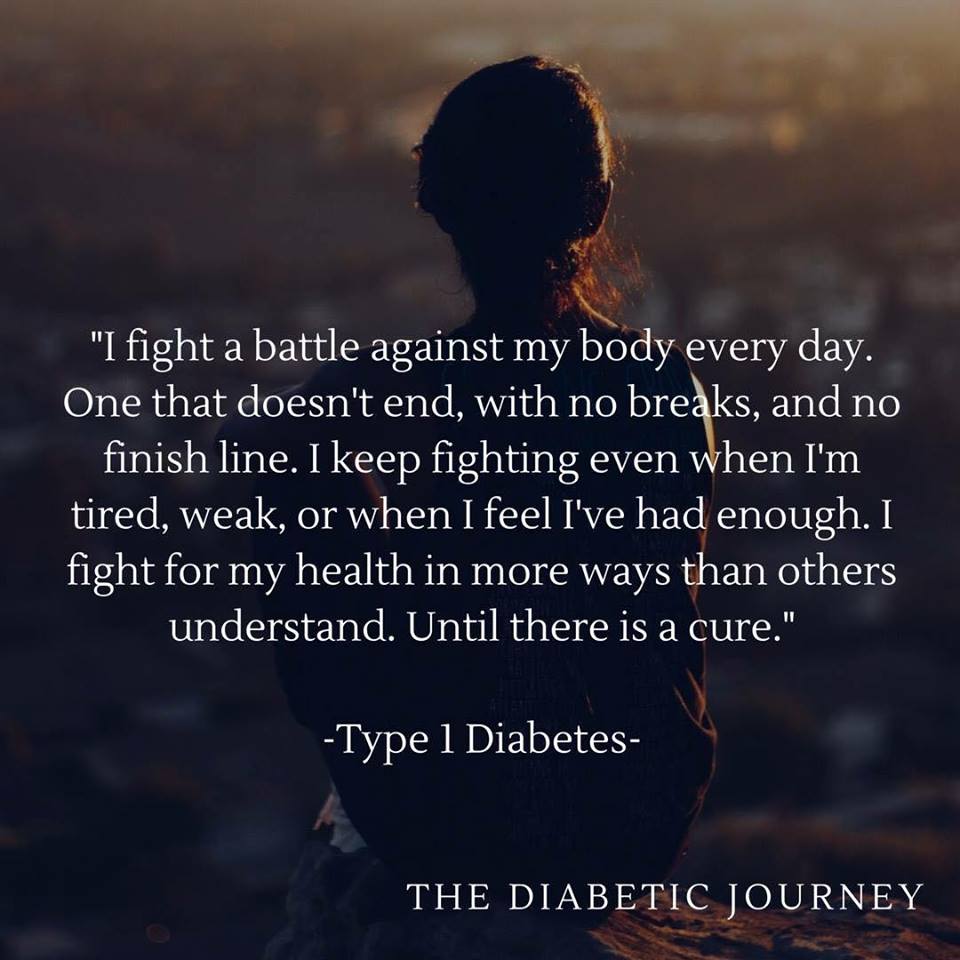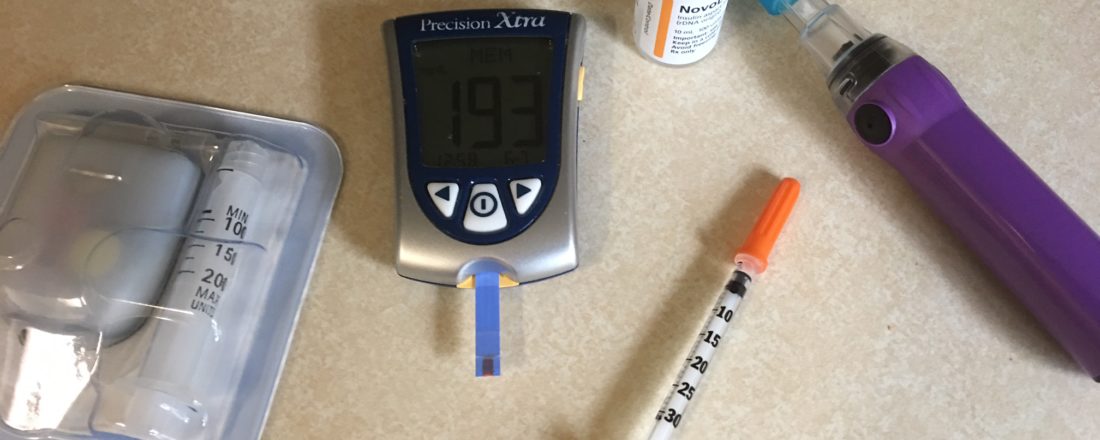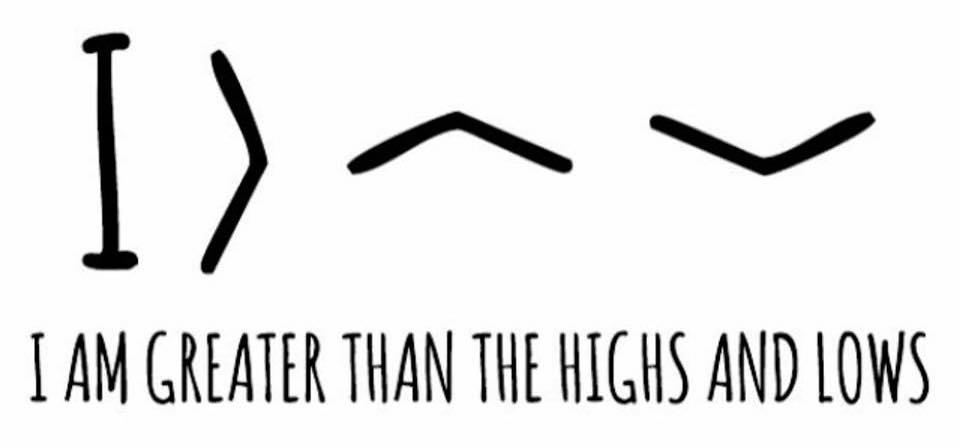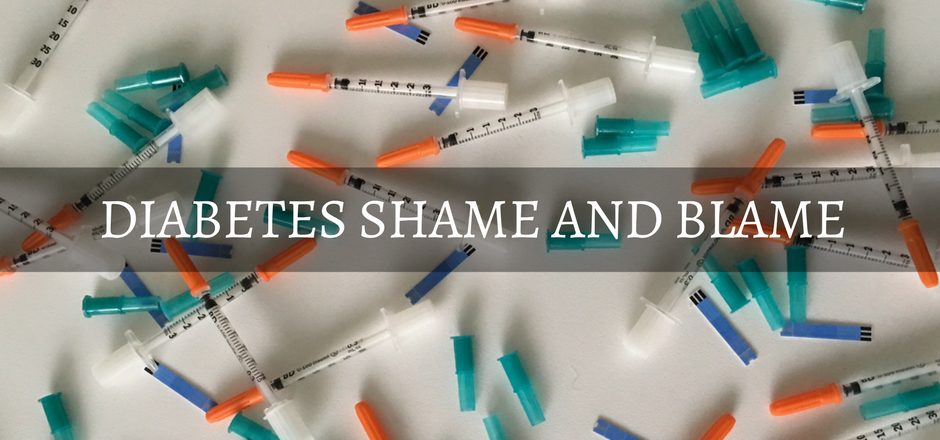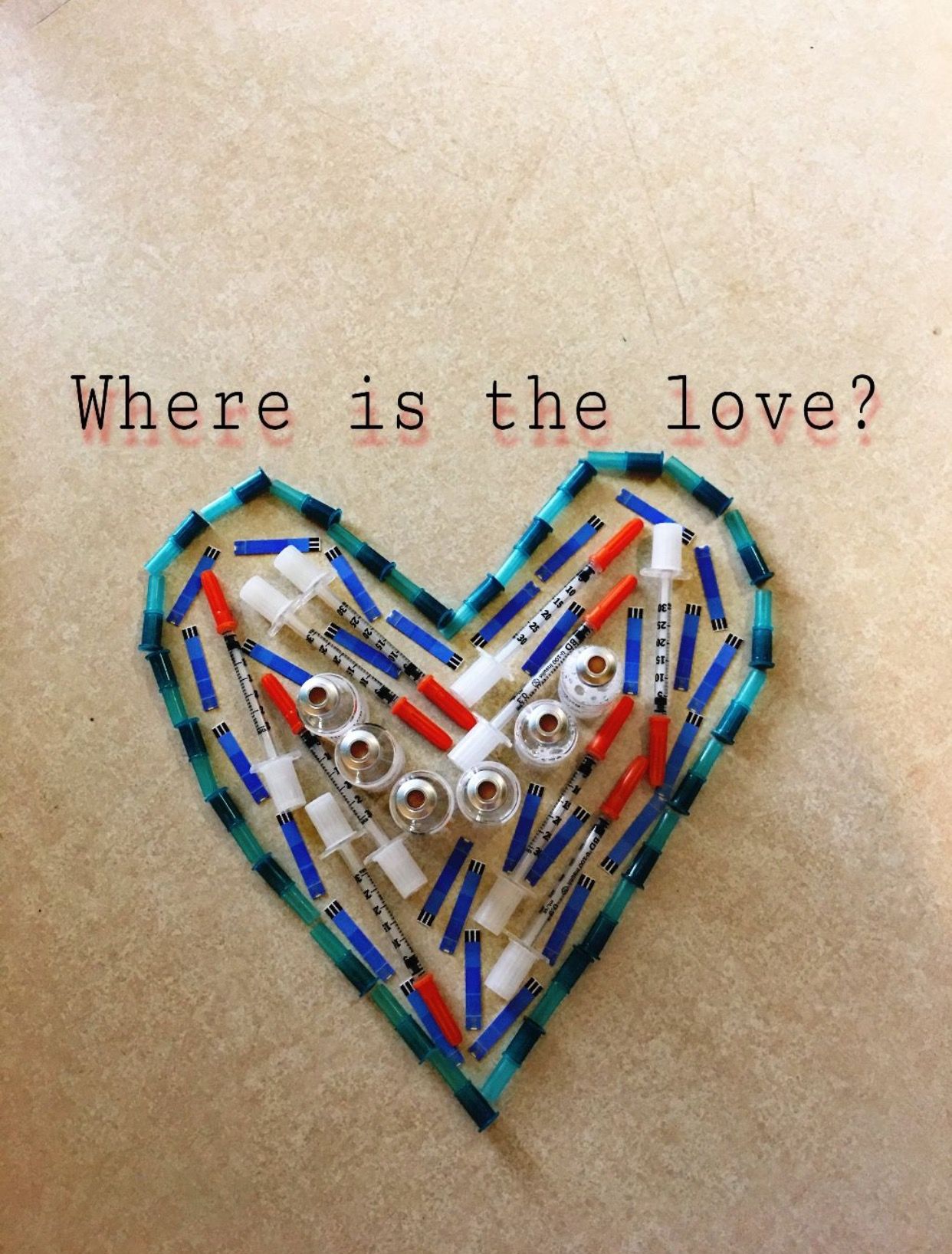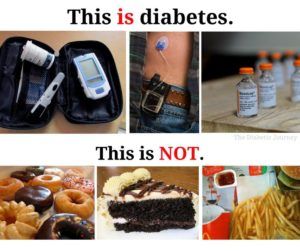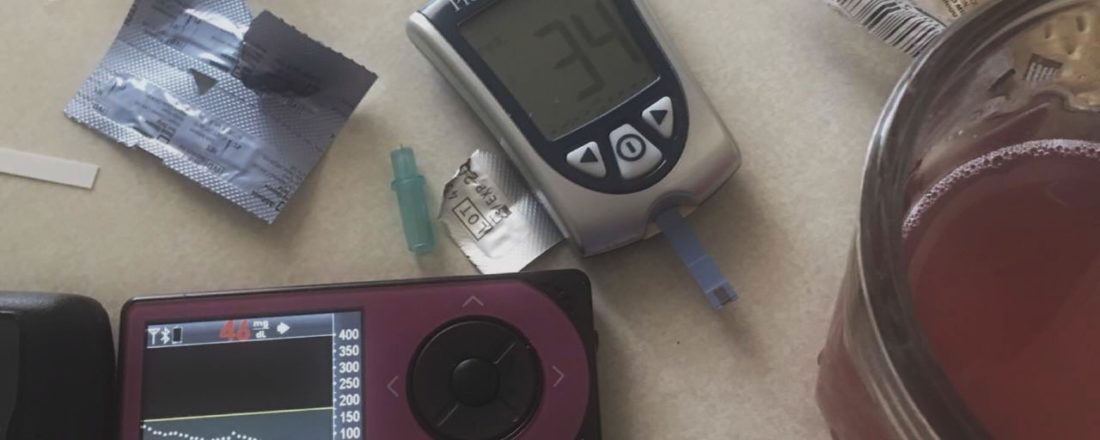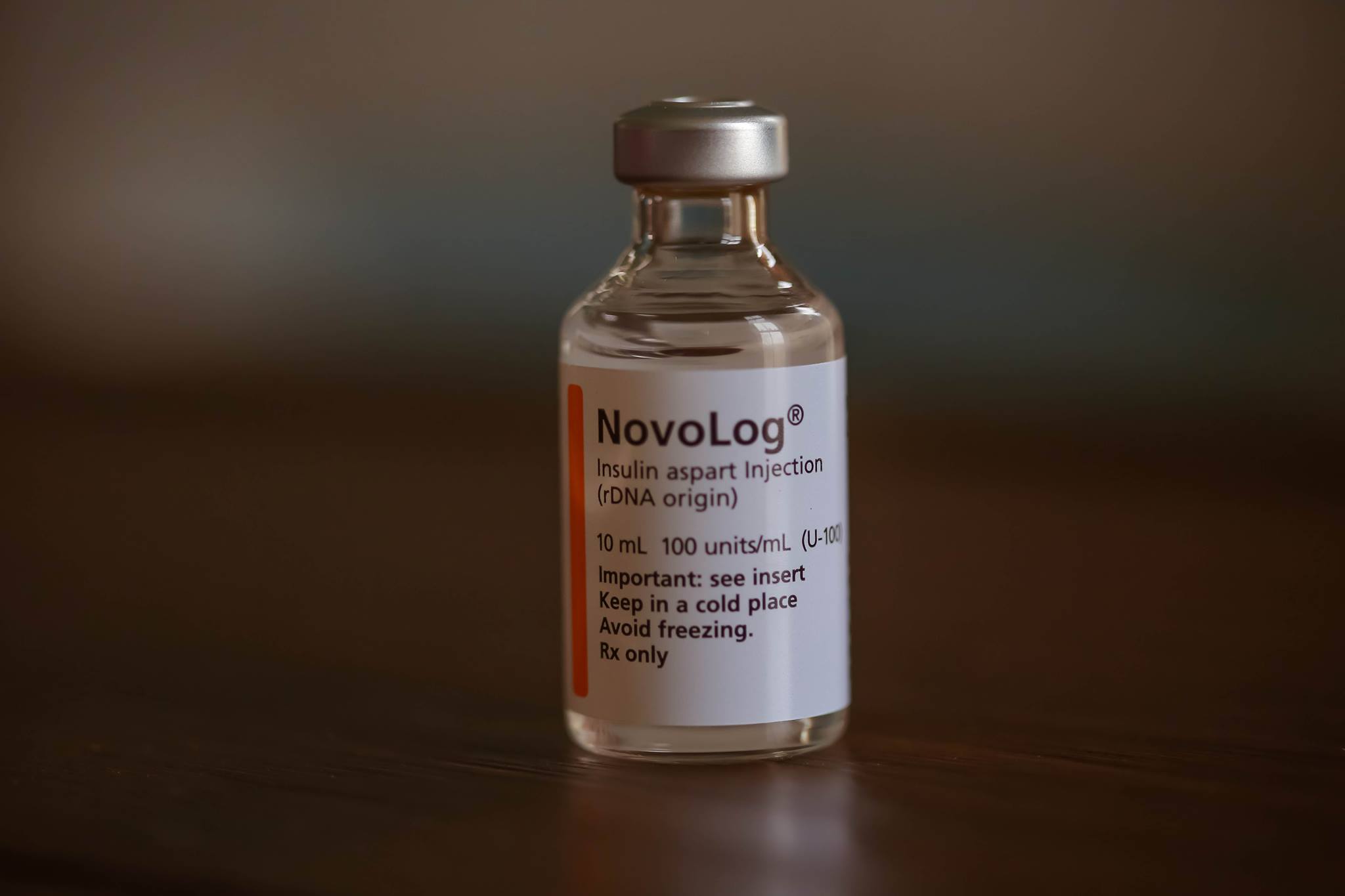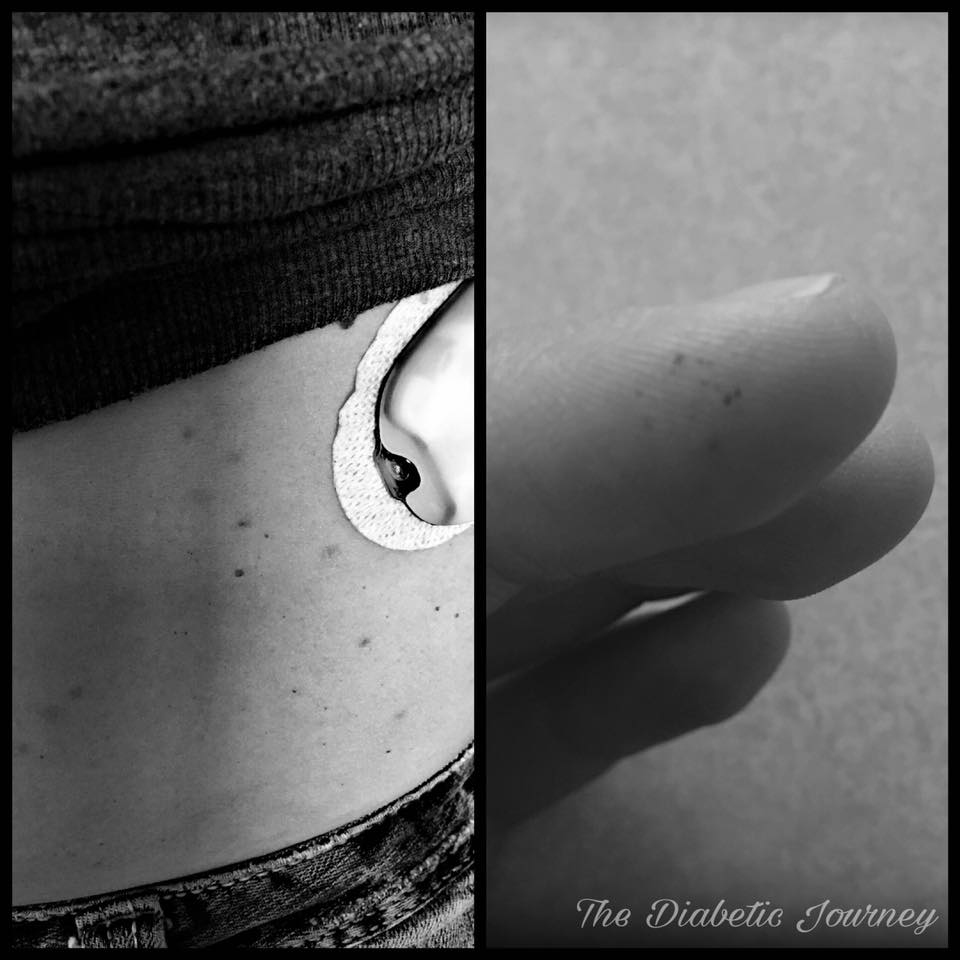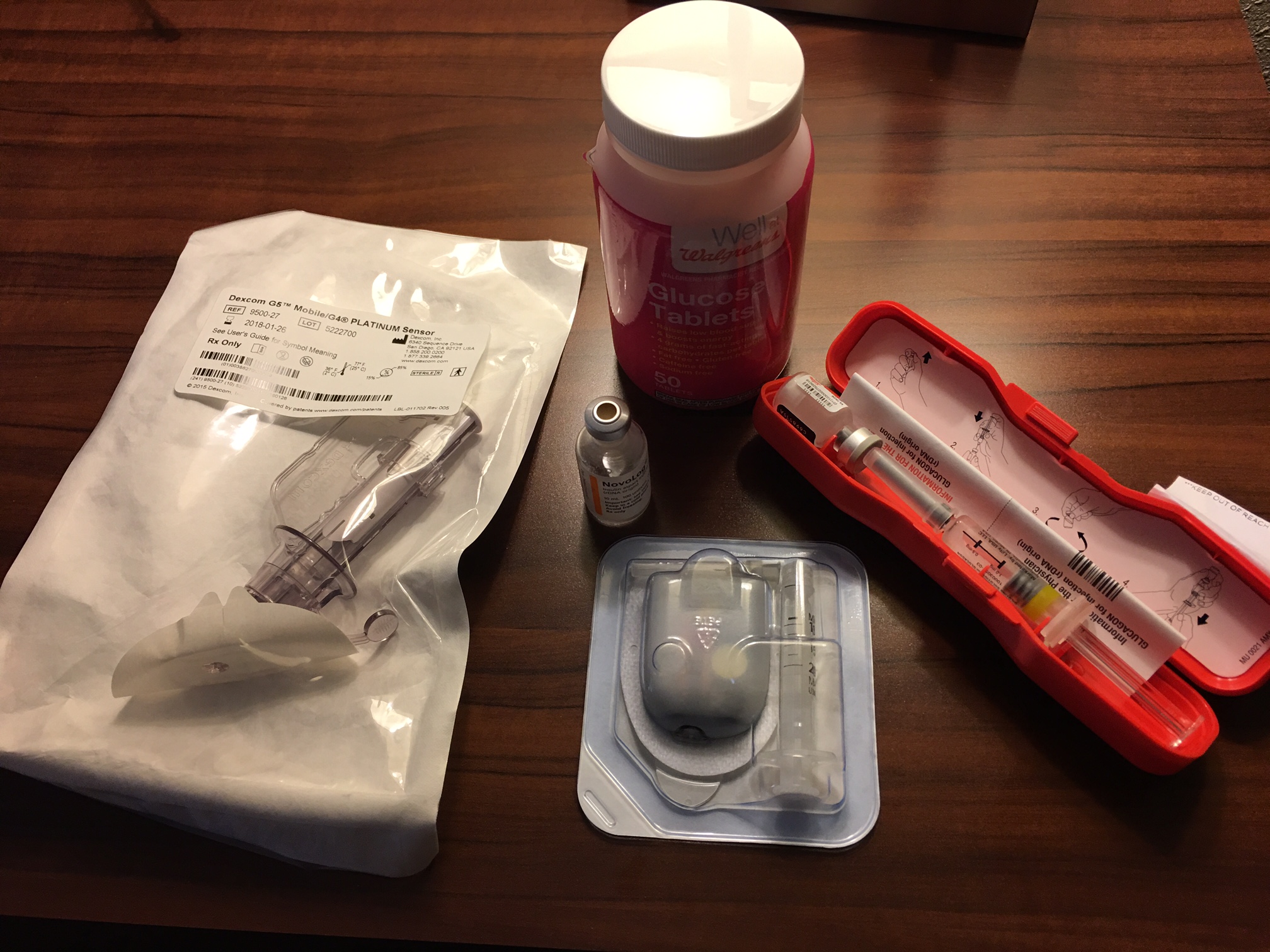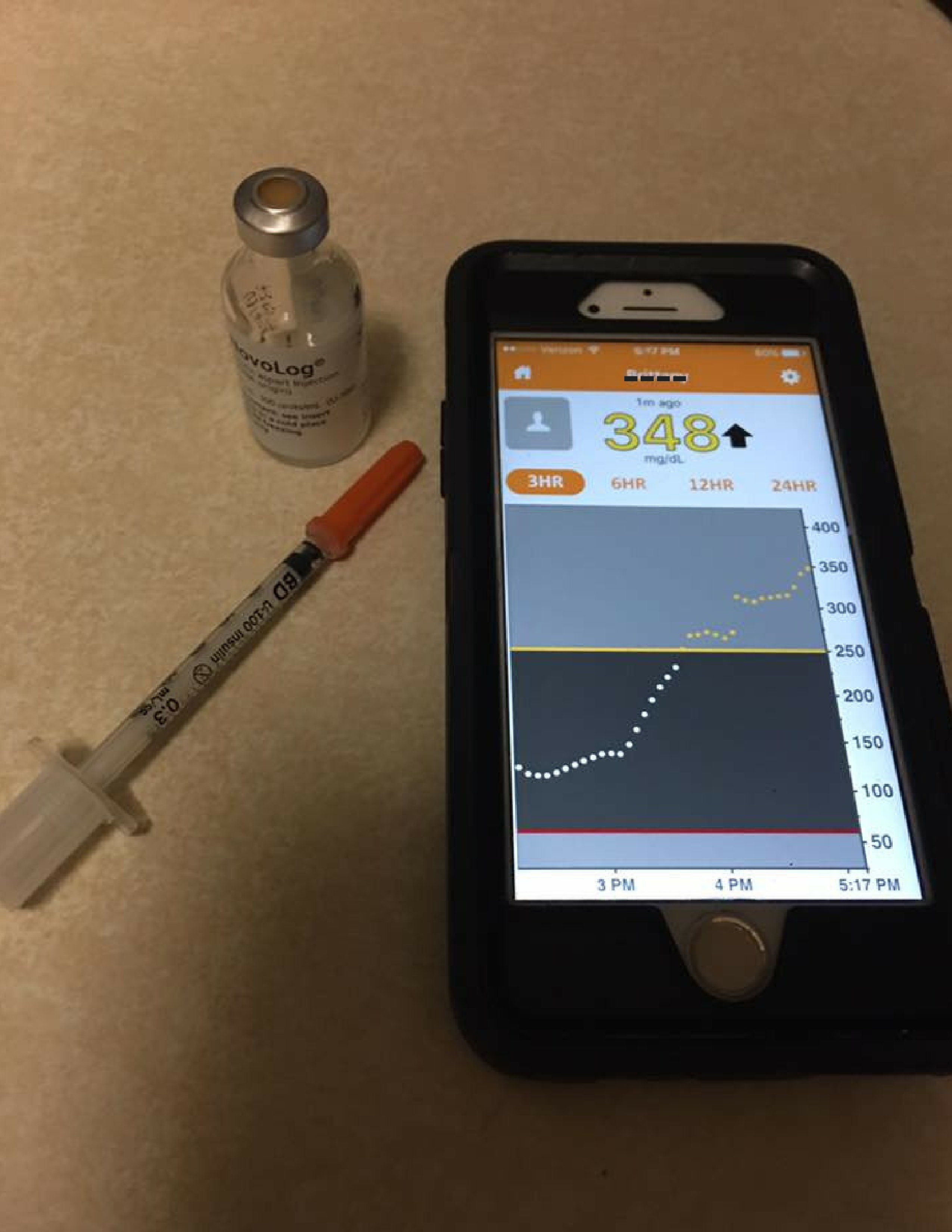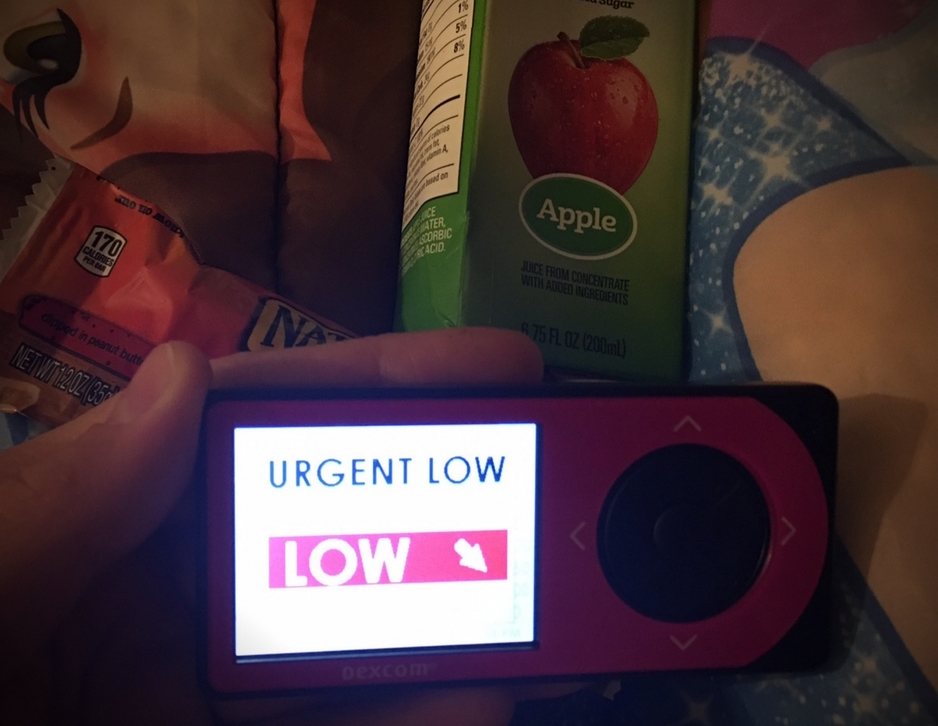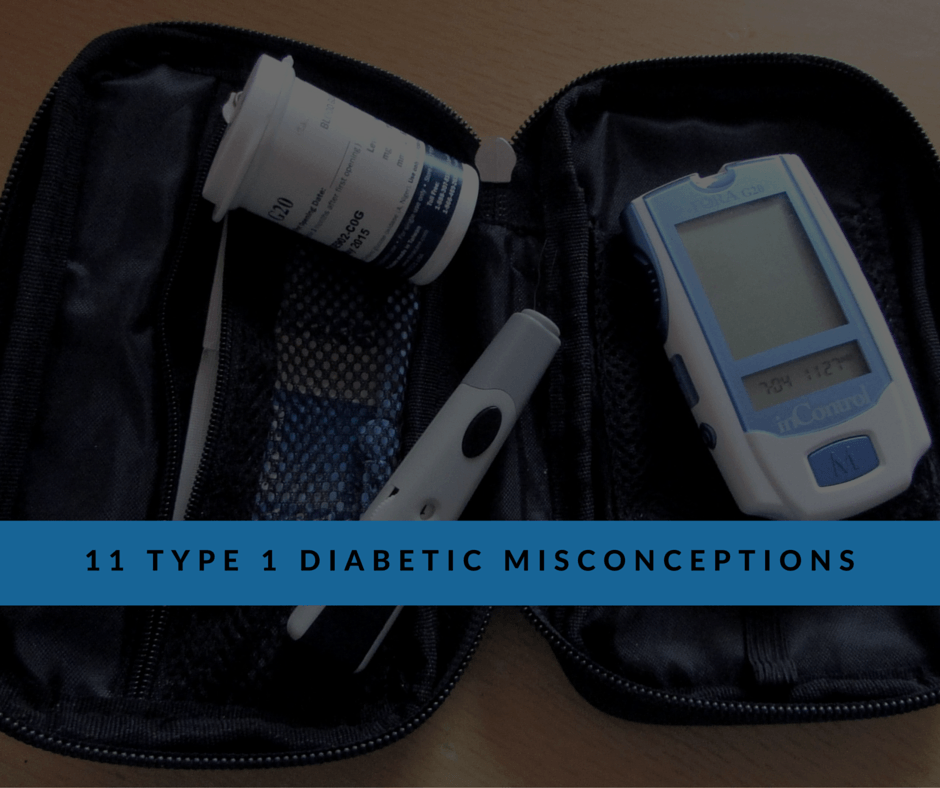“Diabetes Isn’t Even That Bad” …
When I hear this statement it frustrates me. Not because I wish to allow someone’s opinion or thoughts to affect my life.
Not because it is the worst possible condition, because I know it’s not.
I’m extremely thankful for everyday I’m alive, the technology, advancements, and the chance to live a long life.
But because of how UNTRUE that statement actually is when you truly understand the disease.
Diabetes doesn’t seem bad until it enters your life…
Diabetes is when your body basically wages war on itself. In Type 1 Diabetes the immune system attacks the cells in the pancreas and no longer produces insulin. Now it is an everyday battle to maintain normal blood sugars that affect how we feel, our moods, and how we are able to function.
Diabetes is where children are dying from diabetic ketoacidosis because the doctors thought the child had the flu.
Diabetes is where parents are not able to sleep throughout the night, constantly checking their child’s blood sugar, being in fear of their child having a seizure or going into a coma.
Diabetes is where you wake up in the middle of the night drenched in sweat, feeling lost and confused, and having to fight to save your own life by guzzling juice or eating whatever you have nearby.
Diabetes is being dependent on an insulin that costs more than most people pay per month for mortgage. Having to find ways to make food stretch so that you don’t have to go without your insulin to stay alive.
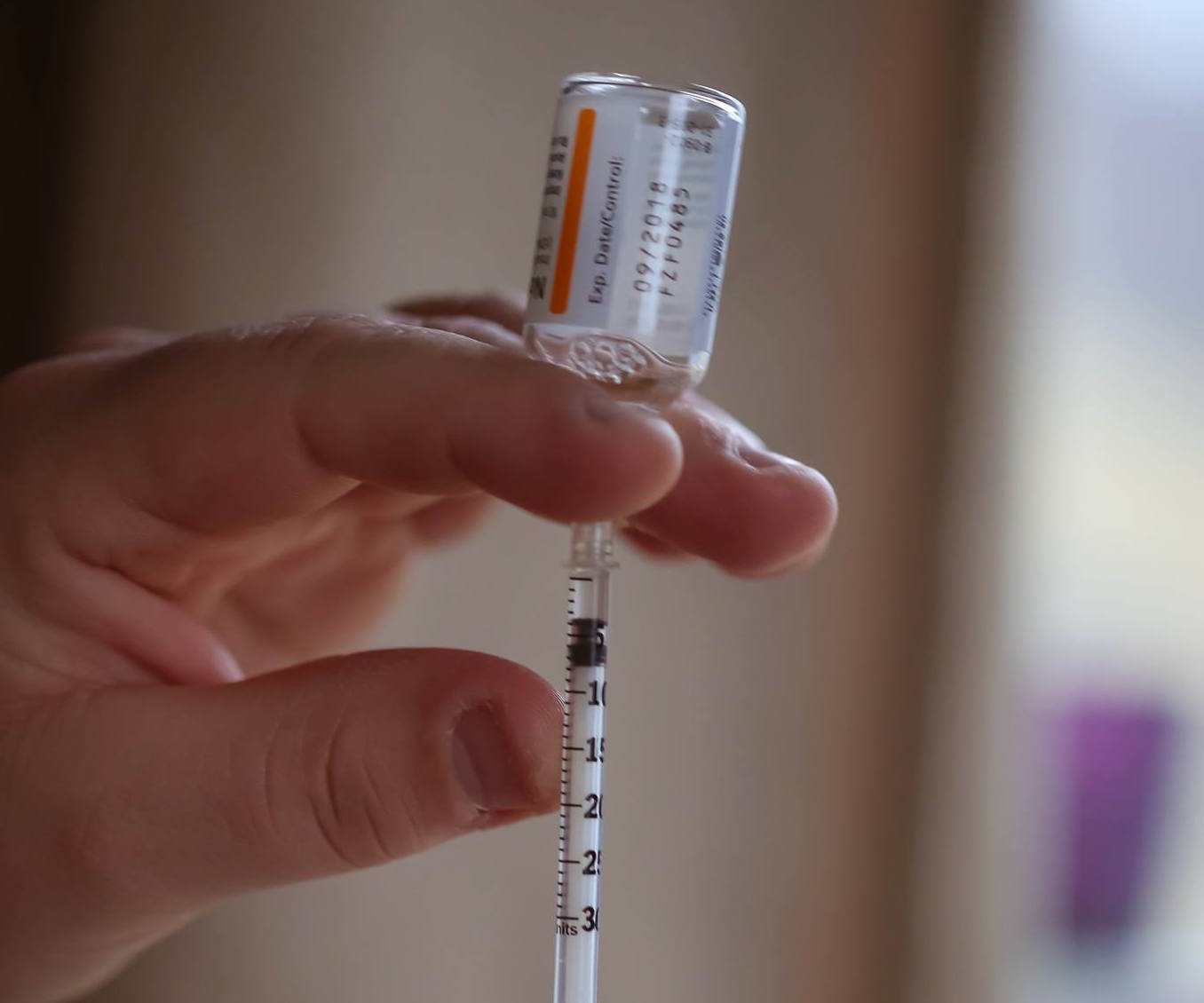
Diabetes is constantly having your eyes, kidneys, and feet checked to see how the diabetes is affecting your body. There is always the risk of complications and the unknown is scary.
Diabetes is finding yourself exhausted all the time, fighting through some really bad days and wishing you could be healthy again.
Diabetes is where you’re constantly managing a disease that will never get better. You sometimes beat yourself up for the lows and high blood sugars, but deep down you know you’re doing the best you can.
Diabetes is having people say “lose weight” or “try this diet” and it will go away. Or someone telling a parent their child’s diabetes was caused by “eating too much sugar”.
Diabetes is living with a disease that could cost you your life while politicians blame the people who have diabetes for costing the healthcare system money. As if it’s our fault that our immune system decided to attack our pancreas.
Diabetes is life-threatening, costly, and an all-consuming disease. And the more we acknowledge “the bad”, the more we can change how this disease is perceived and can help those who battle it everyday.

